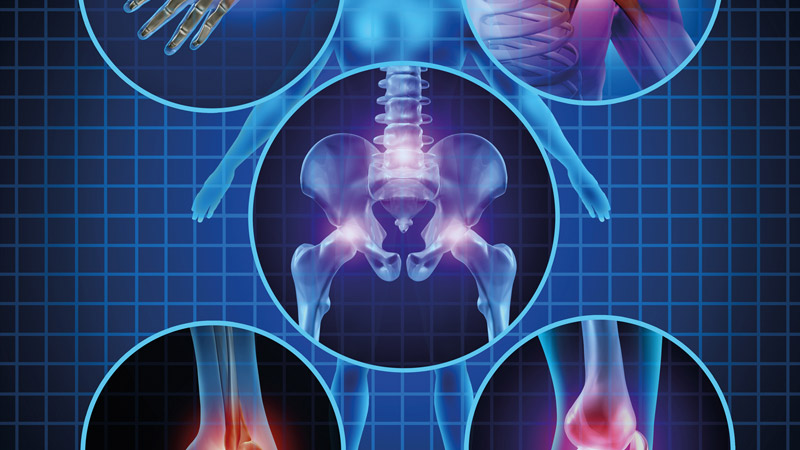Diagnostics
Bone scintigraphy

What is a bone scintigraphy?
A bone or skeletal scintigraphy is a low-radiation, proven and highly sensitive procedure for diagnosing inflammatory and degenerative joint diseases. Other applications include the detection of occult fractures, the assessment of prosthesis loosening (especially hip TEP and knee TEP) and more. In addition, the procedure is very well suited for detecting bone metastases in cancer (especially prostate and breast cancer).
How does the examination work?
For a bone scintigraphy, you need to allow about 3-4 hours. This includes an approx. 2-2.5 hour break, which must be observed between any early scans and the actual scan. It is recommended to drink approx. 1 litre of water during the break, food is allowed.
What should be considered before the examination?
Taking cortisone can make it more difficult to detect inflammatory joint diseases. For this reason, cortisone should be discontinued before a bone or skeletal scintigraphy after consultation with the attending physician.
The examination should not be performed during pregnancy and breastfeeding.
Are the costs reimbursed?
Bone or skeletal scintigraphy is a statutory and private health insurance benefit.


